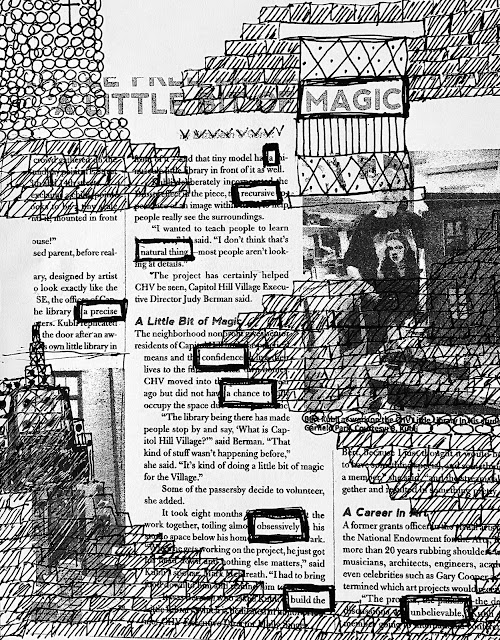 |
| Robert A. Taft Memorial and Carillon |
What does a democracy have to doto get noticed in this town?How could I—walking, as I do, in my city—America’s capitol city—not notice a hundred-foot shaftof Tennessee marble, hostto twenty-seven pedal-struck bells?Not noticethe bells are a carillon—(which must, therefore, numbermore than twenty-three—or be deemed but a chime.)Not notice the bourdon,a booming seven tons of bell—(and also the word for the droninglargest pipe of a organ, and the wordfor bumblebee, and some clever soulpinched the word for a fizzy drinkthat will—you guessed it— get you buzzed.)Perhaps because noticingleads you, on and on,(until your ears ring.)So I walk again to the carillon.It is true. Solid. There.
Isn’t it?After all, these bellshonor President Taft’s son—(WHO?—well, he served in the Senate,I’m told— he sought the Presidencythree times—oh, did he?)—now I’m on unsteady groundagain—but—with a bit of noticing—I see his life rang out to his fellow Senators—(this is the Capitol grounds, after all—and these bells are “a summonsbut noticing this, I feela great silence—I dig again, to easethe unease.Carillons, they say, rose here after war,an echo of those in Europewhere they were exceedingly noticed,for the Nazis (hungry for metal)stole all the bells—(classifying their worthfrom Grade A to D) meltingthe most unworthy into weapons.Bells upon bells upon bellswere heaped in Glockenfriedhöfe—bell cemeteries.Oh, how that noticing, now googled,in hot pursuit of those two words, unearths more—that (in some cemeteries and times past)a bell was tucked in with the deceased, in case….well, you know…someone didn’tnotice they weren’t really dead,weren’t really lost—are we?I walk back to the carillon,to what we command,(by Senate Concurrent Resolution 25)to be sounded with song every July Fourth,at two in the afternoon.I’ve never noticed it, you know—not the *carillonist (chosenby the Architect of the Capitol)issuing forth his yearly Anthem,his America the Beautiful—
wasn't she?
onlythe hourly strike,the daily clamor,the steady keeping of time—and not even that, if my mindis elsewhere—
----Sara Lewis Holmes (all rights reserved)





















